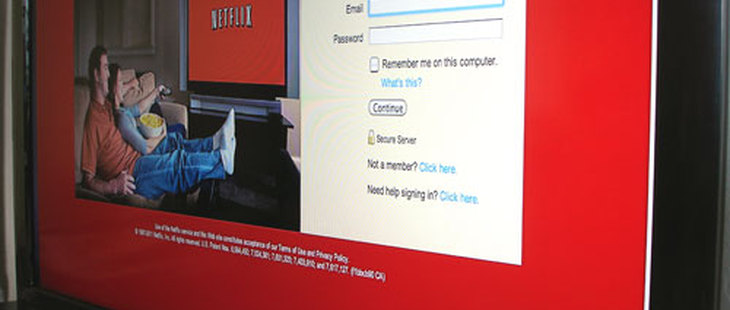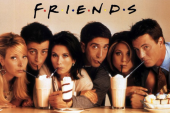
 Netflix, that model of everything that is awesome about the internet, is capable of many surprising things, from killing piracy to enlivening otherwise boring nights of drunkenness for people who, uh, are definitely not me. But is it possible that it and other streaming services might change a pretty fundamental thing-like our idea of ownership? It sounds a bit far-fetched, but that’s the argument that came out of a fascinating discussion yesterday on the blog of venture capitalist Fred Wilson. Though Wilson’s actual post was about a slightly abstract rumination on how we’ll relate to a world in which everything is online, it was commenter ‘EmilSt’ who set minds-a-turnin’ when he said this: “I think our culture is shifting from ownership to access. I prefer to have access to hundreds of songs, movies, spaces, cars (where I need them and when I need them), rather then [sic] owning tens of them and lose time managing them. Time is our most valuable ownership.” It’s not a totally new idea, but it’s a neat way to think of things. Instead of paying money to own digital or physical copies of films and albums, you pay for convenience and to access them wherever or whenever you want – a future that, as we’ve reported before, isn’t actually that far away. It’s the kind of idea that sends blood rushing to the nether regions of futurists, mostly because it hits on a bunch of key future-y ideas: you move from a physical product to a digital service; from the individual work to an nearly limitless, undifferentiated stream; and you outsource your media collection to a server farm in a desert thousands of miles away. In the way a bank went from being a place that physically stored your money to a place that gave you access to it anywhere, Netflix and other online services do something similar for media: films and music stops being ‘things’ and become more like a fluid idea. But if that’s one view of the cloud, more debate was stirred by a markedly different one from Sam Adams at the A.V. Club. He argued that because the key advantage of a service like Netflix is making access simple, something gets lost in the process: “The consequences of exalting ease above all else are twofold. There’s pure economic marginalization, through which less-popular titles are pushed aside… And then there’s the knock-on effect through which ease of access bleeds into ease of viewing. If you’re not inclined to put forth the effort to get yourself in close proximity to a given artwork, will you be willing to expend the mental energy necessary to understand it?” It’s a compelling perspective, because it argues that part of the process of dealing with art that’s good for us – or what the New York Times recently called cultural vegetables – is the physical and mental work that goes into finding and experiencing it. If Wilson and company want to rid us of the clunkyness of physical objects, Adams wants to remind us of their useful weight and presence in our lives. But what both perspectives seem to ignore is a pretty fundamental thing: there’s no reason that our relationship to stuff couldn’t be both physical and digital. While I am a committed Netflix-o-phile, certain films – like say Terence Mallick’s The Thin Red Line – I am saving to watch in their high-definition Blu-Ray glory. Some bits of media and art deserve a certain amount of reverence, and even a very pro-digital nerd like me is occasionally willing to expend the effort to give it to them. The point is that the choice between digital and physical doesn’t have to be either/or. The convenience of online is great for most things, but we have also have a tactile, psychological relationship to objects that colours our approach to art. And in the same way the sheer physical weight of War and Peace or A Fine Balance is a reminder of their effect on us, when a work of art is particularly meaningful to us or society at large, it may not be a bad idea to slow down and go through the trouble of ‘grabbing hold of it.’
Netflix, that model of everything that is awesome about the internet, is capable of many surprising things, from killing piracy to enlivening otherwise boring nights of drunkenness for people who, uh, are definitely not me. But is it possible that it and other streaming services might change a pretty fundamental thing-like our idea of ownership? It sounds a bit far-fetched, but that’s the argument that came out of a fascinating discussion yesterday on the blog of venture capitalist Fred Wilson. Though Wilson’s actual post was about a slightly abstract rumination on how we’ll relate to a world in which everything is online, it was commenter ‘EmilSt’ who set minds-a-turnin’ when he said this: “I think our culture is shifting from ownership to access. I prefer to have access to hundreds of songs, movies, spaces, cars (where I need them and when I need them), rather then [sic] owning tens of them and lose time managing them. Time is our most valuable ownership.” It’s not a totally new idea, but it’s a neat way to think of things. Instead of paying money to own digital or physical copies of films and albums, you pay for convenience and to access them wherever or whenever you want – a future that, as we’ve reported before, isn’t actually that far away. It’s the kind of idea that sends blood rushing to the nether regions of futurists, mostly because it hits on a bunch of key future-y ideas: you move from a physical product to a digital service; from the individual work to an nearly limitless, undifferentiated stream; and you outsource your media collection to a server farm in a desert thousands of miles away. In the way a bank went from being a place that physically stored your money to a place that gave you access to it anywhere, Netflix and other online services do something similar for media: films and music stops being ‘things’ and become more like a fluid idea. But if that’s one view of the cloud, more debate was stirred by a markedly different one from Sam Adams at the A.V. Club. He argued that because the key advantage of a service like Netflix is making access simple, something gets lost in the process: “The consequences of exalting ease above all else are twofold. There’s pure economic marginalization, through which less-popular titles are pushed aside… And then there’s the knock-on effect through which ease of access bleeds into ease of viewing. If you’re not inclined to put forth the effort to get yourself in close proximity to a given artwork, will you be willing to expend the mental energy necessary to understand it?” It’s a compelling perspective, because it argues that part of the process of dealing with art that’s good for us – or what the New York Times recently called cultural vegetables – is the physical and mental work that goes into finding and experiencing it. If Wilson and company want to rid us of the clunkyness of physical objects, Adams wants to remind us of their useful weight and presence in our lives. But what both perspectives seem to ignore is a pretty fundamental thing: there’s no reason that our relationship to stuff couldn’t be both physical and digital. While I am a committed Netflix-o-phile, certain films – like say Terence Mallick’s The Thin Red Line – I am saving to watch in their high-definition Blu-Ray glory. Some bits of media and art deserve a certain amount of reverence, and even a very pro-digital nerd like me is occasionally willing to expend the effort to give it to them. The point is that the choice between digital and physical doesn’t have to be either/or. The convenience of online is great for most things, but we have also have a tactile, psychological relationship to objects that colours our approach to art. And in the same way the sheer physical weight of War and Peace or A Fine Balance is a reminder of their effect on us, when a work of art is particularly meaningful to us or society at large, it may not be a bad idea to slow down and go through the trouble of ‘grabbing hold of it.’














